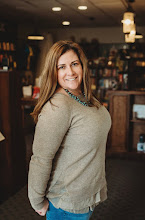My husband and I went to Chicago this weekend with friends. Yesterday we met my parents and their friends before dinner. One of their friends is the president of our local bank. He is very successful but I don’t think of that when I see him, I just see my parents’ friend, this wonderfully nice man.
I think too often we can put people up on pedestals. Successful people where we live, actors, artists, politicians, people famous for being famous, authors, even teachers. Sometimes we don’t see them as real people. I know early in my career kids would be shocked when they ran into me in the grocery store – maybe they thought I didn’t need food? Or when they’d see my at the pool, their teacher swam? As I’ve worked here longer that has changed.
As a child I know I put my favorite authors up on pedestals. Judy Blume and Beverly Cleary lived in a cabin in the woods writing by themselves. I didn’t believe there was anyway they had real lives, families, etc. I didn’t see anyway that I could ever “speak” to them, more than that – why would they speak to a little kid from a small town in Central Illinois? The downside of this line of thinking is that I never saw being an author as a goal I could attain. I was a reader, a writer, but not an author.
Then the power of Twitter (I know, again) came in to knock authors off their pedestals for me. Some of my favorite authors as an adult are actually people who write for teachers. Through Twitter I’ve met them, become friends with them. They helped to show me that we are more alike than different. That we all are passionate about education, literacy, children. Some of my best conversations around teaching have come from sharing meals with them.
I began to meet children’s authors. That was wonderful for many reasons. I could tell them how much I (and my students) appreciate their work. I could ask them questions for my students. And I could teach my students that being an author isn’t some far off fantasy world available only to an elite group. That is powerful.
I see this at work in my classroom all of the time. Kids now ask each other about what they are working on in their writing. My students often ask to tweet (or have me tweet) a question to their favorite author. For example, Thursdays I was asked to tweet Kazu Kibuishi (@boltcity). They asked the following questions. (His answers follow the questions):
- When does Amulet 5 come out? September 2012
- How many will be in the series? Currently at least 8
- Do you write first or draw first? Sometime dialogue, sometimes draw. Usually at the same time.
How cool is it that they think of questions and thirty minutes later, their favorite author answers? This has happened time after time with Sharon Creech, KateMessner, Scott Westerfeld, Jennifer Holm, Tom Angleberger, and many more.
However, the best example, for me, that I’ve succeeded in demystifying the role of author is when I spoke to my six year old last week. He was working on a picture and writing what was happening in it. I asked him if he was proud of his work and his reply was, “Yep, I’m a good author.” When I asked what he was going to be when he grew up his reply was, “An author, maybe an illustrator too.” Job complete.















